The Carolina Hurricanes will face the Florida Panthers in the Eastern Conference Final beginning on Thursday, while the Dallas Stars face the Vegas Golden Knights in the west, beginning on Friday.
Related: Hurricanes & Panthers Highlight The Value of Defensive Forwards
The four teams remaining have fun storylines, takeaways, and insights into the game. The Stars and Hurricanes both relocated in the 1990s, while the Panthers and Golden Knights are both expansion teams. The northern-most team remaining plays in Raleigh, North Carolina, and the Stanley Cup Final will therefore be played in a warm climate instead of traditional hockey weather. The final four also have a historic link to Commissioner Gary Bettman’s vision for growing the game, but none of them has a real legacy of success, with only two titles between them.
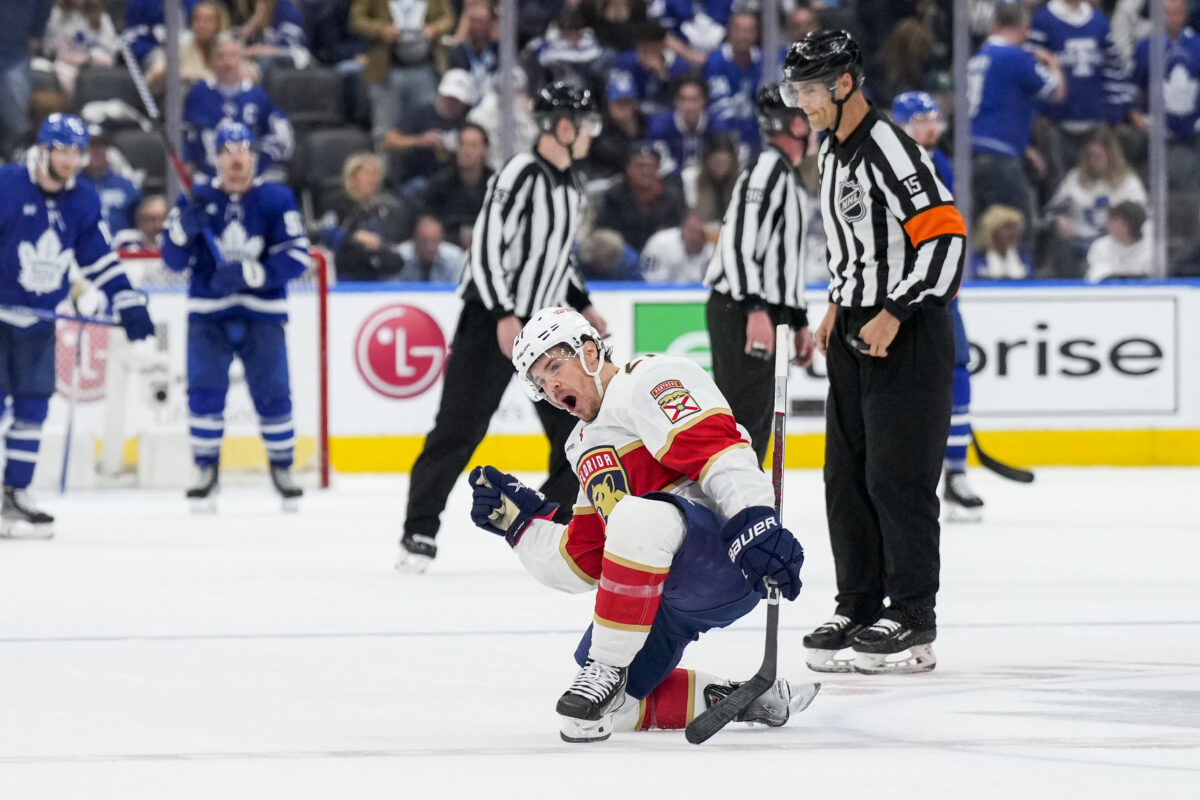
However, every team wants to win the Cup, and a closer look at the Golden Knights, Hurricanes, Panthers, and Stars can provide insight into how they can take that big leap.
Coaching Matters
Head coach Rod Brind’Amour’s influence is seen throughout the Hurricanes’ roster. The way they play and how they adapt to situations is reflective of his coaching style and how he envisions a successful team. Throughout the playoffs, the Hurricanes have created open shots with cross-ice passes and gotten into shooting lanes to deflect pucks or interfere with the opposing goaltender’s vision. Defensively, the skaters are gap-sound, willing to block shots, and know where to play in the neutral zone to keep an opponent from establishing an offensive zone presence. Perfecting the details is a sign of a well-coached team and that players are willing to play under Brind’Amour and his system.
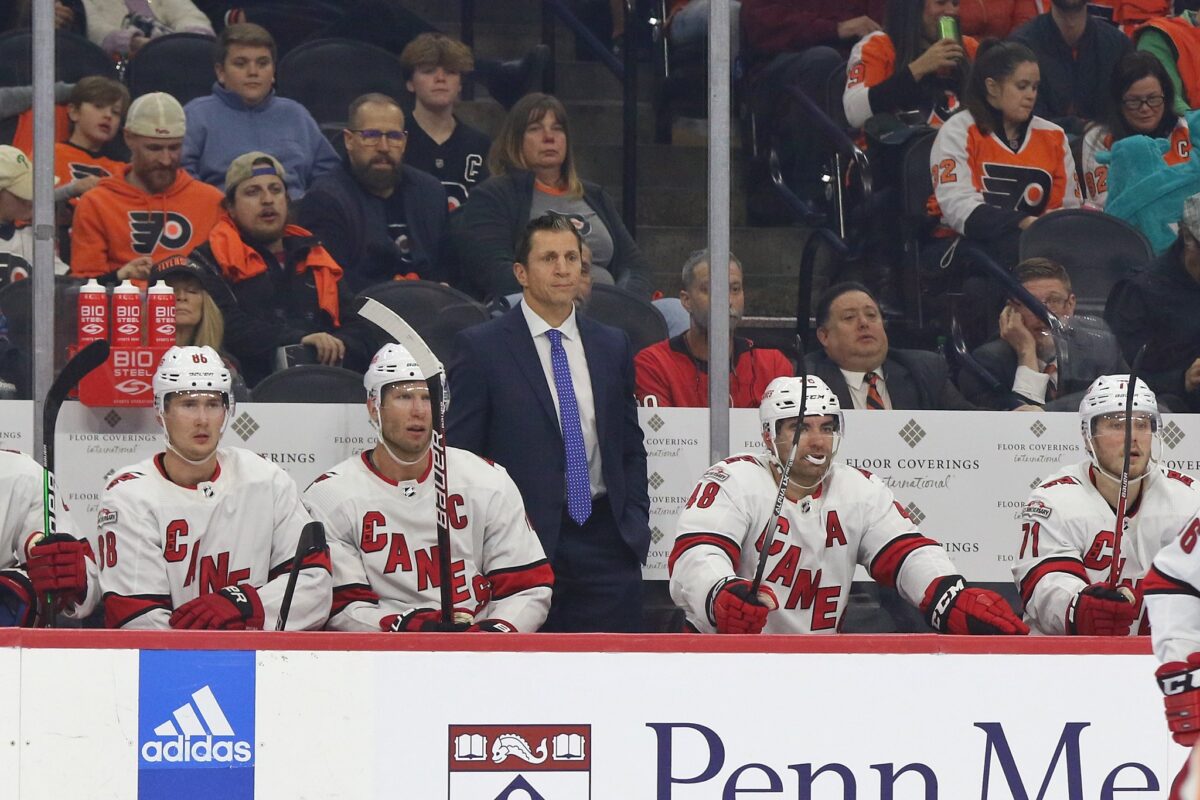
Along with Brind’Amour, the other three teams have also found coaches who suit their roster; all three were hired in the 2022 offseason and have made their teams contenders after one year behind the bench.
When the Panthers hired Paul Maurice, the decision was a questionable one, to say the least. He was coming off a rocky tenure with the Winnipeg Jets and was replacing interim head coach Andrew Brunette, who led the team to the Presidents’ Trophy that season. However, Maurice has provided the fire and energy behind the bench that the team needed. He’s not an innovative coach, but he brings out the best in his players, which helped the Panthers overcome a 3-1 series deficit against the Boston Bruins in the First Round and defeat the Toronto Maple Leafs in the Second Round.
The Stars hired Pete DeBoer to add a spark to an offense that only averaged 2.84 goals per game in the 2021-22 season. With a faster, more aggressive, and offensive-minded system, the team now has one of the best offenses in the league, scoring 3.43 goals per game this season and 3.61 goals per game in the playoffs. Dallas already had a great defense and elite goaltending but needed a boost offensively, and DeBoer has provided that. He took the New Jersey Devils to the Stanley Cup Final in 2012 and the San Jose Sharks in 2016, both in his first seasons with the team, and now he’s four wins away from doing the same with another.
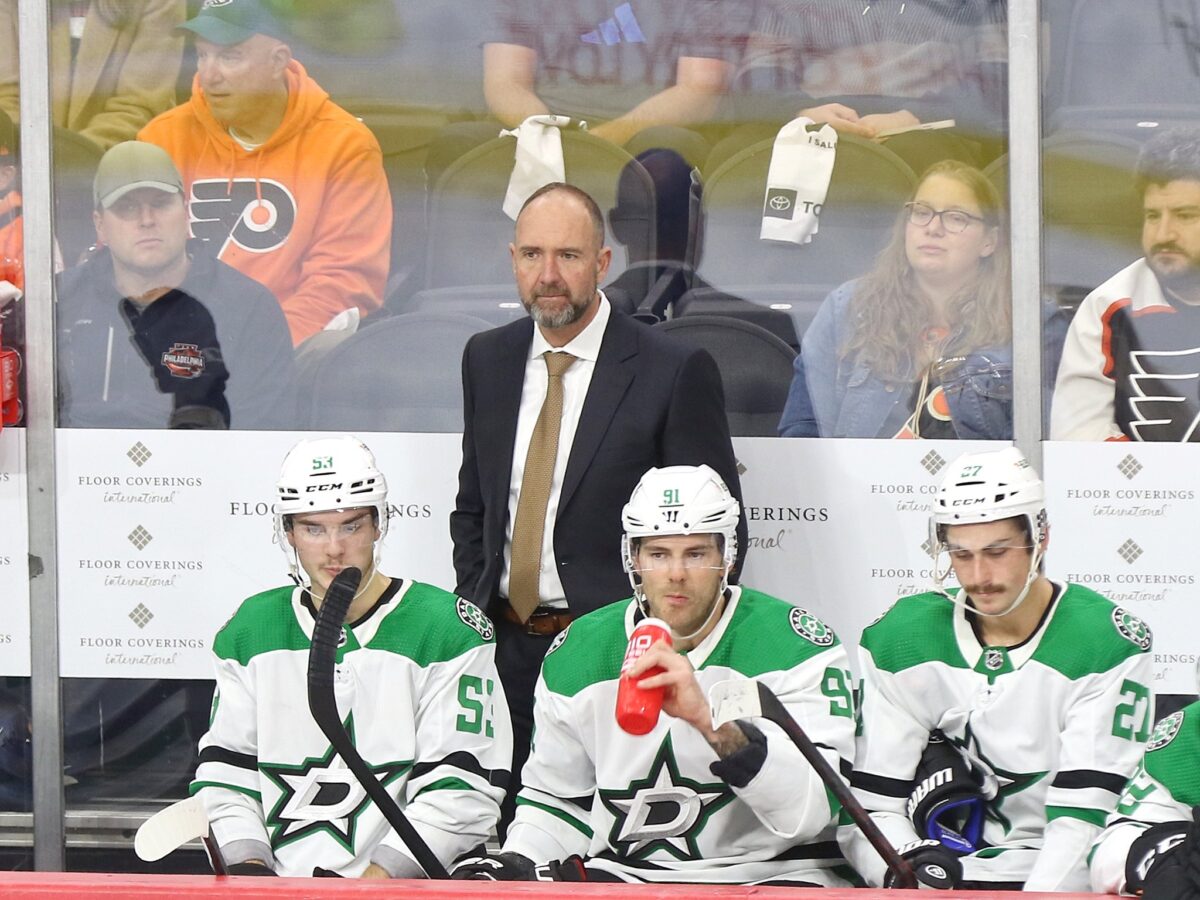
While DeBoer added offense to the Stars, Bruce Cassidy balanced out DeBoer’s previous team, the Golden Knights. While they don’t have a top-10 offense, defense, or special teams, the Golden Knights are built to defeat any opponent. Cassidy prepares his team well, and it shows in each series. Against the Edmonton Oilers, they won high-scoring games and were able to limit the speed and skill of Connor McDavid and Leon Draisaitl to win the series in six games. The team can win high-scoring or low-scoring games, and they are more situationally prepared under their new head coach.
They often say that a team looks for the best coach available. However, the teams that succeed are the ones that hire the right coach for the roster in place. Whether it’s to fix a deficiency or motivate specific players, the ideal coach can fill that void and make a team a Cup contender.
Depth & Defensive Forwards Are Essential
The Hurricanes have highlighted the need for great defensive forwards, specifically a center who can neutralize an opponent’s top line. Against the New York Islanders, Jordan Staal centered the line that went up against the Mathew Barzal-led line, the team’s fastest and most dynamic line, and they eliminated them throughout the six-game series. Similarly, Staal lined up against Jack Hughes and the New Jersey Devils’ top line and limited him from making big plays in the neutral zone and on the rush to help the Hurricanes win the series in five games. In a league dominated by skill and goal scorers, a center and a forward line that can limit those skaters goes a long way.
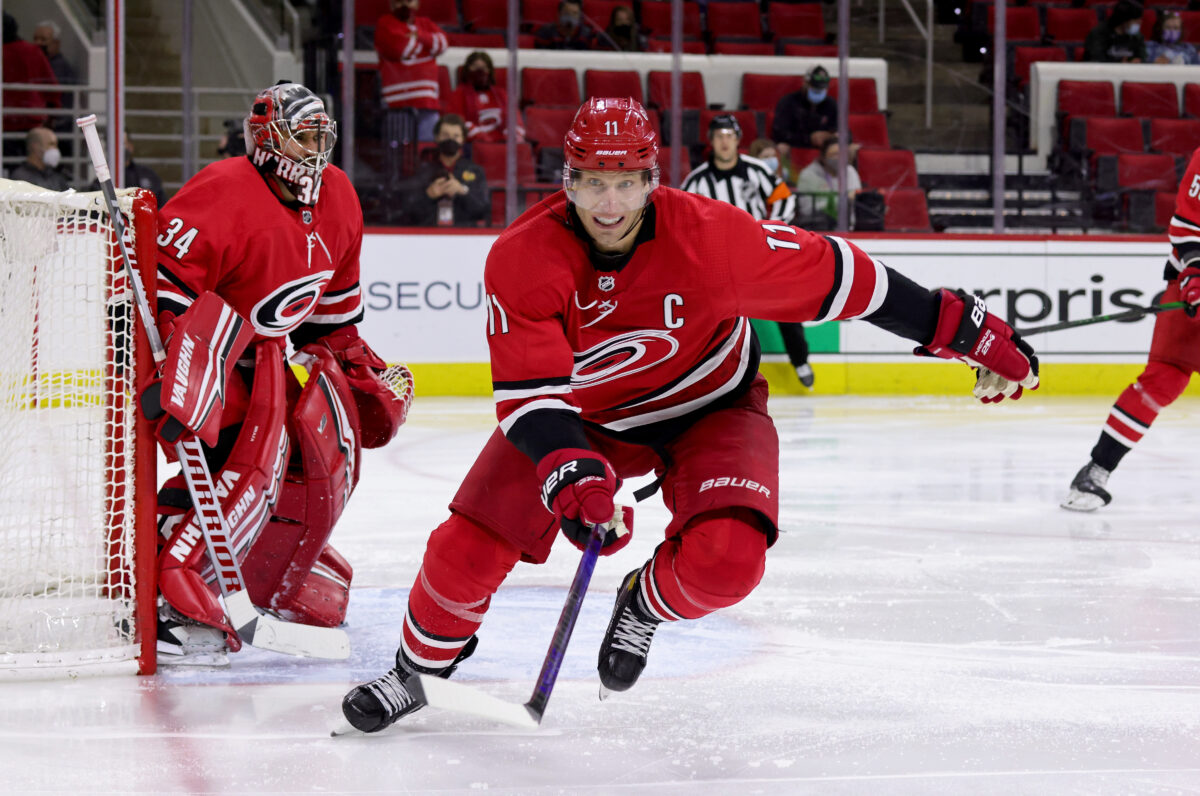
Likewise, these playoffs have shown the value of depth. The Hurricanes have dealt with a surplus of injuries but have overcome them with depth players stepping up. Paul Stastny scored nine goals this season but scored three in the First Round, including the Game 6 overtime winner. Jordan Martinhook plays a minor role upfront, averaging only 15:38 of ice time with 13 goals and 21 assists this season, but he has three goals and a team-leading seven assists in the playoffs. Jack Drury only played in 38 games this year but now has a pivotal role defensively on the Staal-led line. The Hurricanes have asked the next skaters to step up time and time again and have gotten them to do so without fail, a sign of the player’s buy-in but also the depth in place.
The Panthers have also built their team, especially their top six, with defense in mind. Matthew Tkachuk was acquired in the 2022 offseason for his offensive skills but also as a power forward who can create turnovers and deliver hard hits along the boards. Aleksander Barkov, who won the Selke Trophy in 2021, centers a top line and uses his instincts and speed to create turnovers in all three zones and his skating to immediately set up the offense.
The Panthers faced the Bruins and Maple Leafs, two of the league’s best offenses, in the first two rounds, and their forwards playing a better defensive game made the difference in both matchups. After losing to the Tampa Bay Lightning in a sweep last year, the team returned to the playoffs well aware that they needed to step up both offensively and defensively. Barkov and Tkachuk are exceptional scorers but have made a real impact in the playoffs with their defensive play.
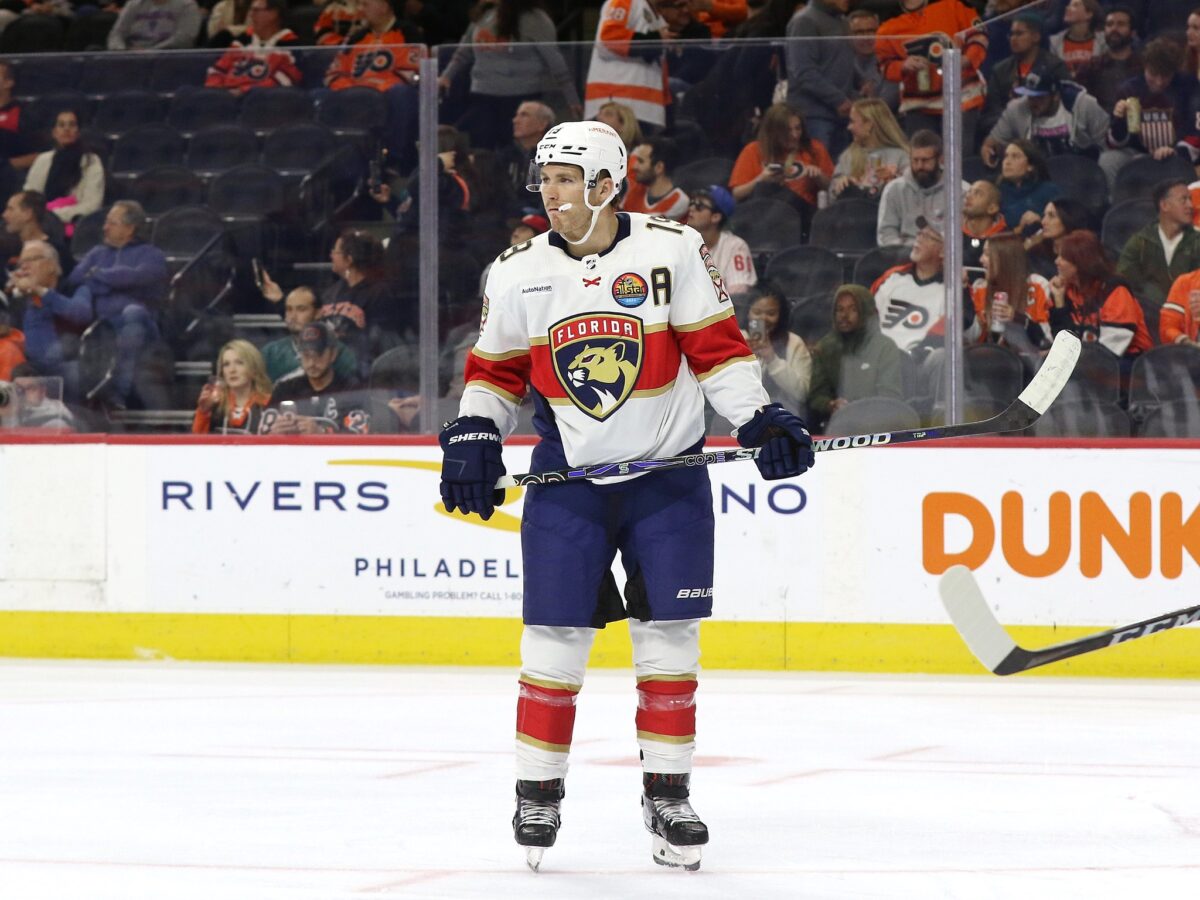
The Golden Knights and the Stars, who are carried by their star players, have highlighted the importance of depth in their playoff run. Vegas goaltender Adin Hill entered Game 3 of the Second Round in relief of Laurent Brossiot, who left the game with an injury and helped seal the series victory with strong performances in Games 5 and 6, saving 39 shots in the series-clinching victory. The Stars acquired Max Domi and Evgenii Dadonov at the trade deadline to add depth to the forward unit, and the two have combined for seven goals and 13 assists in the playoffs. Defensemen Thomas Harley only played six games this season, but the 21-year-old has played every game in the playoffs, and he’s been one of the team’s best defensemen, stepping up at the point with six assists.
In the playoffs, great opponents limit or even eliminate the best skaters. The great teams have players on the later lines and late pairings that can step up and win those games. Depth doesn’t win a Cup, but it can make a difference in a series, and the final four teams have proven that.
Versatile Stars Are Key
The Stars have one of the best offenses in the league. Along with a new system, they have players who can adapt and beat any defense, led by their best skater who has emerged as an elite playmaker.
Jason Robertson became one of the best players in the NHL this season. He plays in a smaller market and doesn’t receive the same recognition as other NHL stars, but he is one of the most prolific scorers in the league. He scored 46 goals and 109 points, which were tied for sixth in the league – more than Hughes, Mitch Marner, Tage Thompson, and Artemi Panarin. His passing ability, especially, which improved throughout the season, has opened up the Stars’ offense in the playoffs. His 10 assists are tied with Roope Hintz for the team lead and have helped the Stars overwhelm the opposition. Teams are trying to stop Robertson from finding open shots, but instead, he’s found Hintz and Joe Pavelski with quick passes to make the offense dynamic.
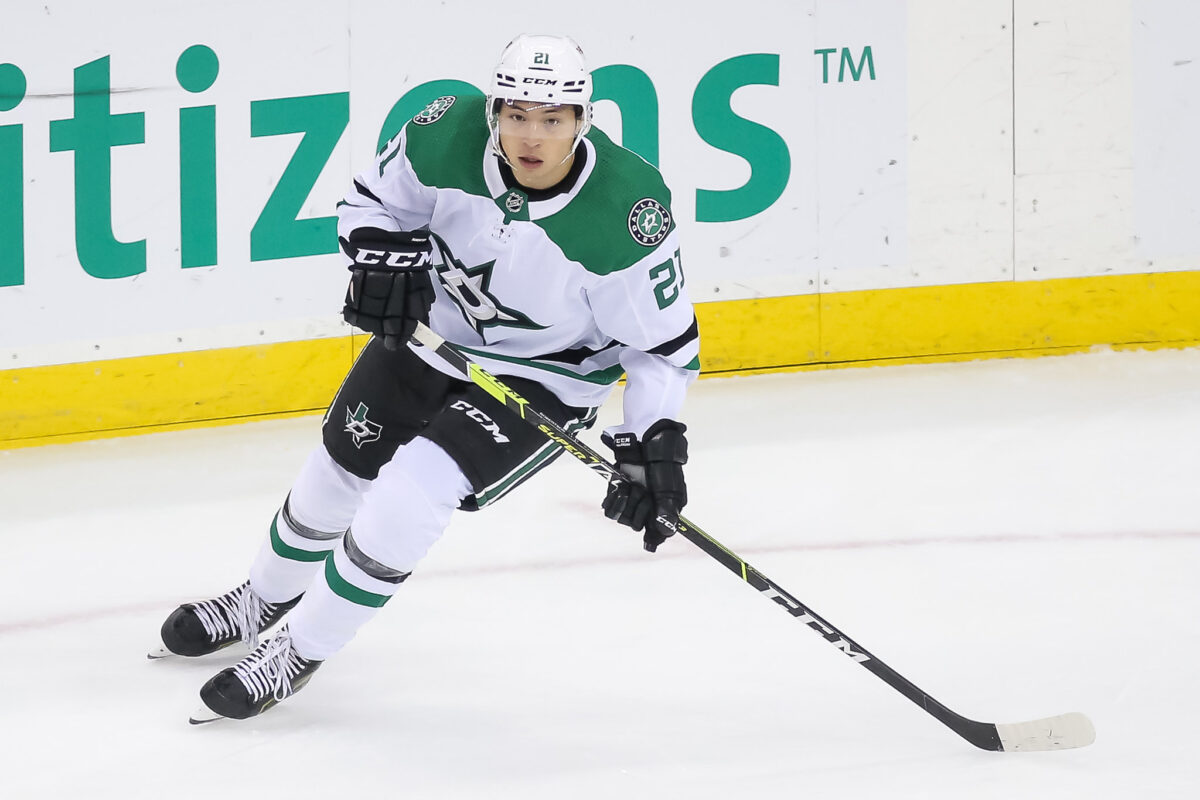
The playoffs have also displayed Sebastian Aho’s versatility; he can both create scoring chances and find the back of the net himself. He’s not regarded as one of the best in the league and has only finished in the top 10 in the Hart Trophy voting once, but he is one of the best skaters in the NHL, and the playoffs have highlighted his skills as a game-changer.
He has five goals and five assists, leading the top line, and is not only gashing defenses on the rush but also slowing the game down to methodically attack a defense. Aho has a great shot but is also willing to find the open skater near the net, which has made him difficult to defend. His ability to adapt and create offense in a multitude of ways has given the Hurricanes an edge, especially when they’ve gone up against great defenses.
For the Golden Knights, Mark Stone and Jack Eichel are versatile top-six forwards who give the team multiple potent forward lines. Eichel’s skating and puck handling has been stellar, but his ability to find open skaters and shoot the puck on net has made him a playoff standout. He’s scored six goals and eight assists, giving him a team-leading 14 points in his first career playoff run. Stone, meanwhile, missed most of the season with an injury but came back for the playoffs and hasn’t lost a step. Along with the five goals and seven assists, he’s been great in the defensive zone waiting for the opposition to make a mistake and take advantage, an attribute that particularly paid off in the series against the Oilers.
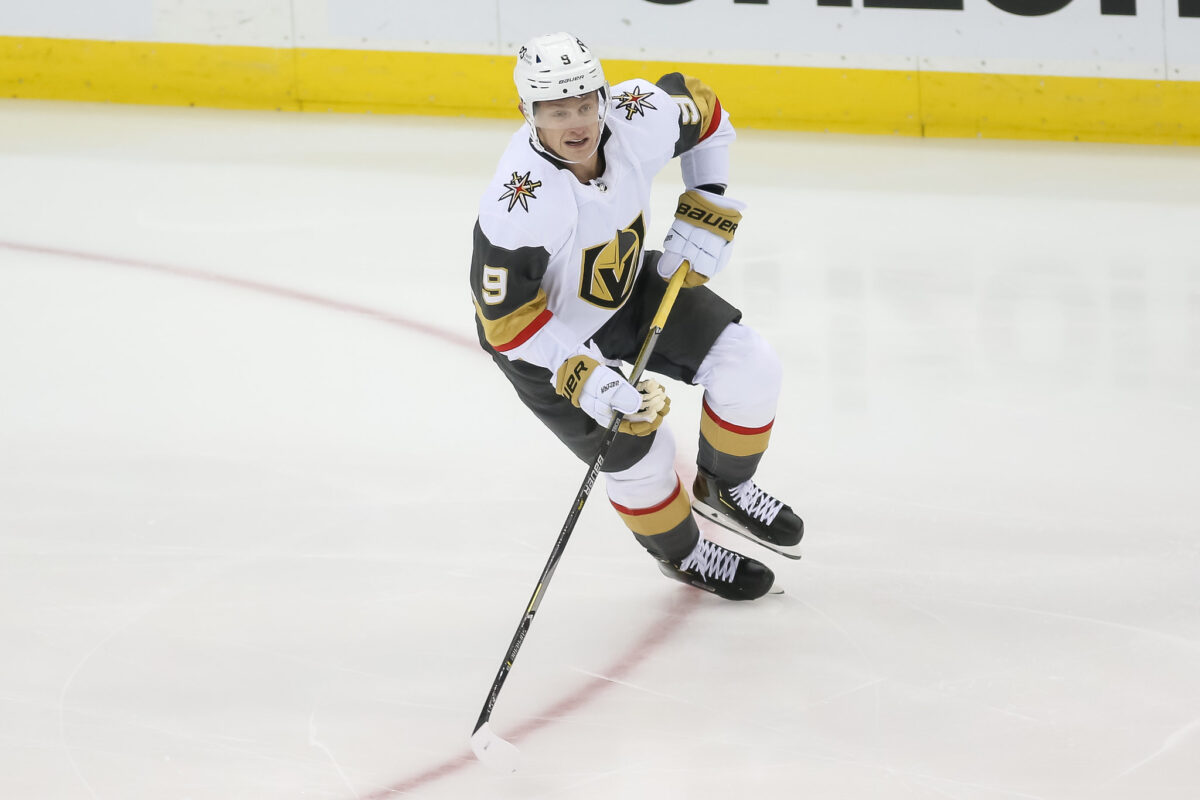
Tkachuk, meanwhile, does everything for the Panthers and has often carried them in this playoff run. Along with being a powerful scoring presence, fighting for goals near the net, and firing the puck past opposing goaltenders, he’s found open skaters with quick centering and cross-ice passes. Moreover, Tkachuk has been able to slow the game down and physically impose his will.
When the game gets messy or the opposition has figured out what a team does best, they need to have skaters who can adjust and take over the game regardless. The final four teams have elite players who not only can carry their teams but can also adapt, depending on the team that they are facing.
Defensive Units Win Championships
Brent Burns is having one of the best seasons of his career and has been pivotal to the Hurricanes’ success in the playoffs. He’s been a great puck handler and has set up the offense with turnovers and outlet passes, but he’s also been a force from the blue line. He has two goals and six assists, including a goal and an assist in the 6-1 Game 4 win over the Devils. Burns, along with a handful of Hurricanes skaters, including Jaccob Slavin, Brett Pesce, and Shayne Gostisbehere, have stepped up, combining for four goals and 11 assists in the playoffs to help open up the offense.
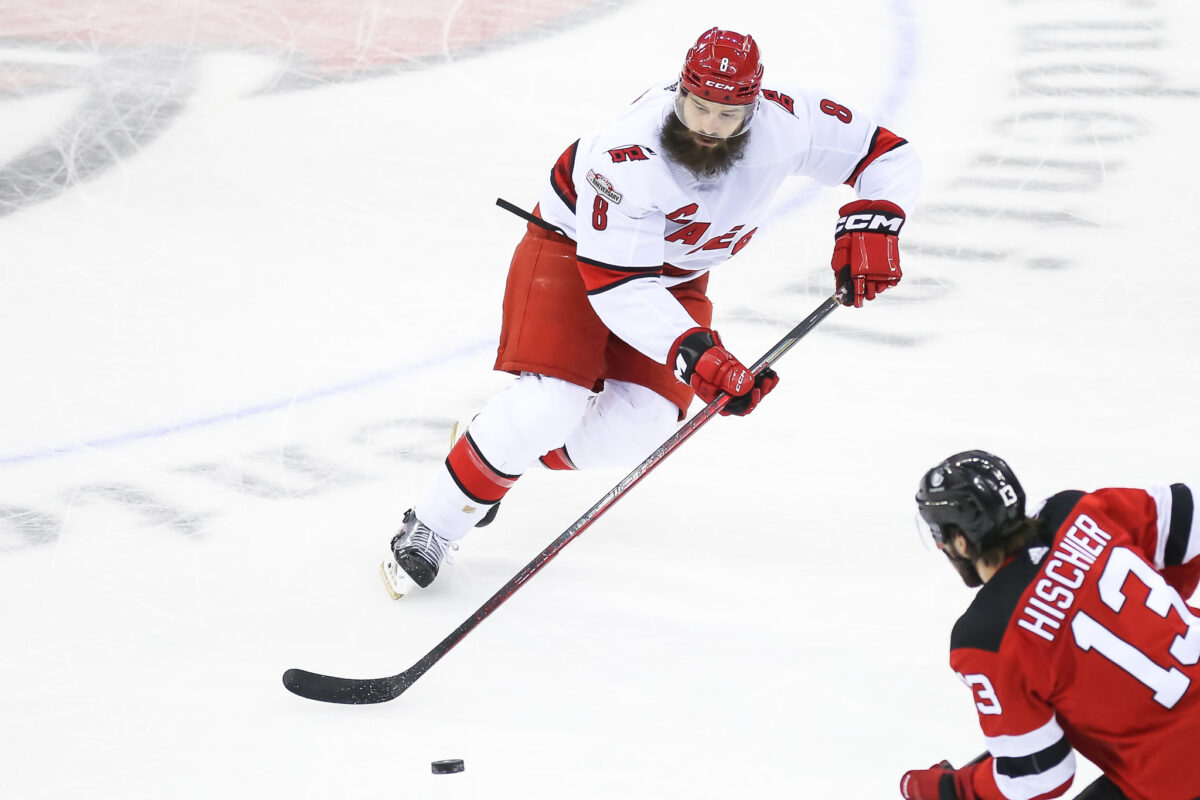
However, the Hurricanes’ defensive unit has made an impact not just at the point but in all facets of the game. They’ve limited opponents from finding high-danger chances, forced turnovers in all three zones, set up the offense with outlet passes, and entered the puck into the offensive zone with great puck movement. Even with the forward unit struggling and being plagued by injuries, the team hasn’t missed a beat, and the defense has stepped up, making the team look worthy of a Cup championship.
The Panthers struggled all season defensively, allowing 3.32 goals per game. However, in the playoffs, the defensive unit helped propel the team past the Bruins and the Maple Leafs. Brandon Montour and Gustav Forsling have taken on more ice time, averaging 25:00 or more per game, and are starting to make a significant impact in the defensive zone, getting into shooting lanes and making it difficult to find open shots on net. They have also been critical to the team’s offense. Forsling has two goals and three assists, while Montour has six goals and three assists and is tied with Sam Bennett for the team lead in goals in the playoffs. The Panthers’ defense always had the firepower to help out the offense from the point, but in the playoffs, they have really stepped up to take over games defensively.
The Golden Knights are also carried by a defense that can do it all. They have a dynamic two-way player who can open up the offense, with Alex Pietrangelo leading the way. They also have shot-blocking, gap-sound defensemen with Alec Martinez and Brayden McNabb. Additionally, the entire unit can skate with any offense in the league and limit an opponent from creating in open space. In particular, Vegas has a defensive unit that can carry the team and is built for the modern game: limiting a potent offense while also helping to create scoring chances.
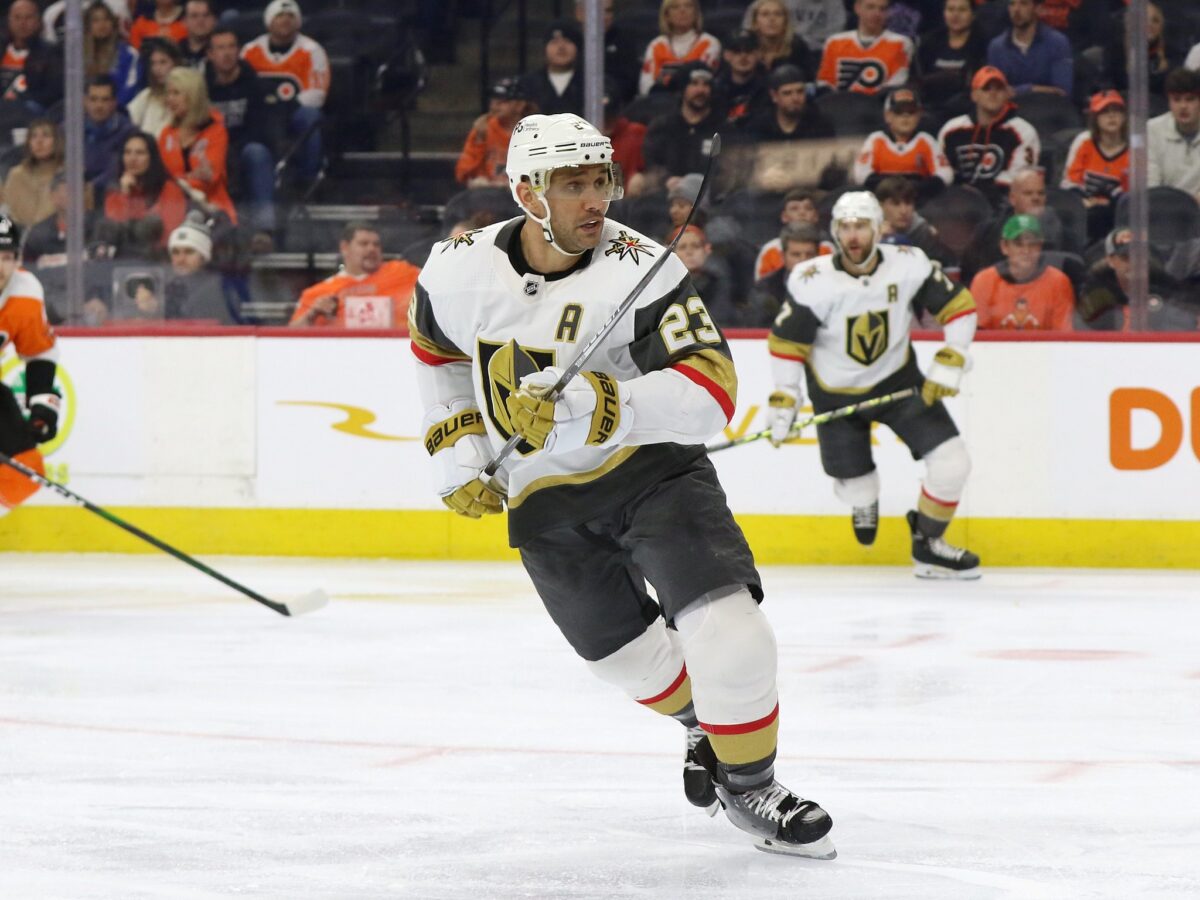
In an ever-evolving league, a great defensive unit has become more valuable than ever before. They must limit great offenses, which are taking over the league, but also help offensively with great puck movement and playmaking from the point. In the past few years, the teams that have won the Cup have had well-built defenses, and the 2023 winner will have a great one as well.
Hurricanes & Stars Never Chased in Free Agency
The Hurricanes weren’t a powerhouse team until recently. After winning the Cup in 2006, they missed the playoffs in 11 of the next 12 seasons and were a consistent last-place team. That all changed in the 2018-19 season when they hired Brind’Amour and general manager (GM) Don Waddell.
Waddell’s style has impressed since the Hurricanes have been a perennial playoff team without acquiring a star. He rarely chases after elite players in free agency and has often moved on from the most talented players on the team, including Jeff Skinner and Dougie Hamilton. Instead, he signs role players who are willing to play under his coach and buy into the system.
In the 2022 offseason, the Hurricanes acquired Max Pacioretty, signed Stastny, and traded for Burns with the hope that all three would find valuable roles on a contending roster. While Pacioretty has dealt with injuries, Stastny has become a reliable defensive forward who has also stepped up in the playoffs, while Burns has become arguably their best skater this season.
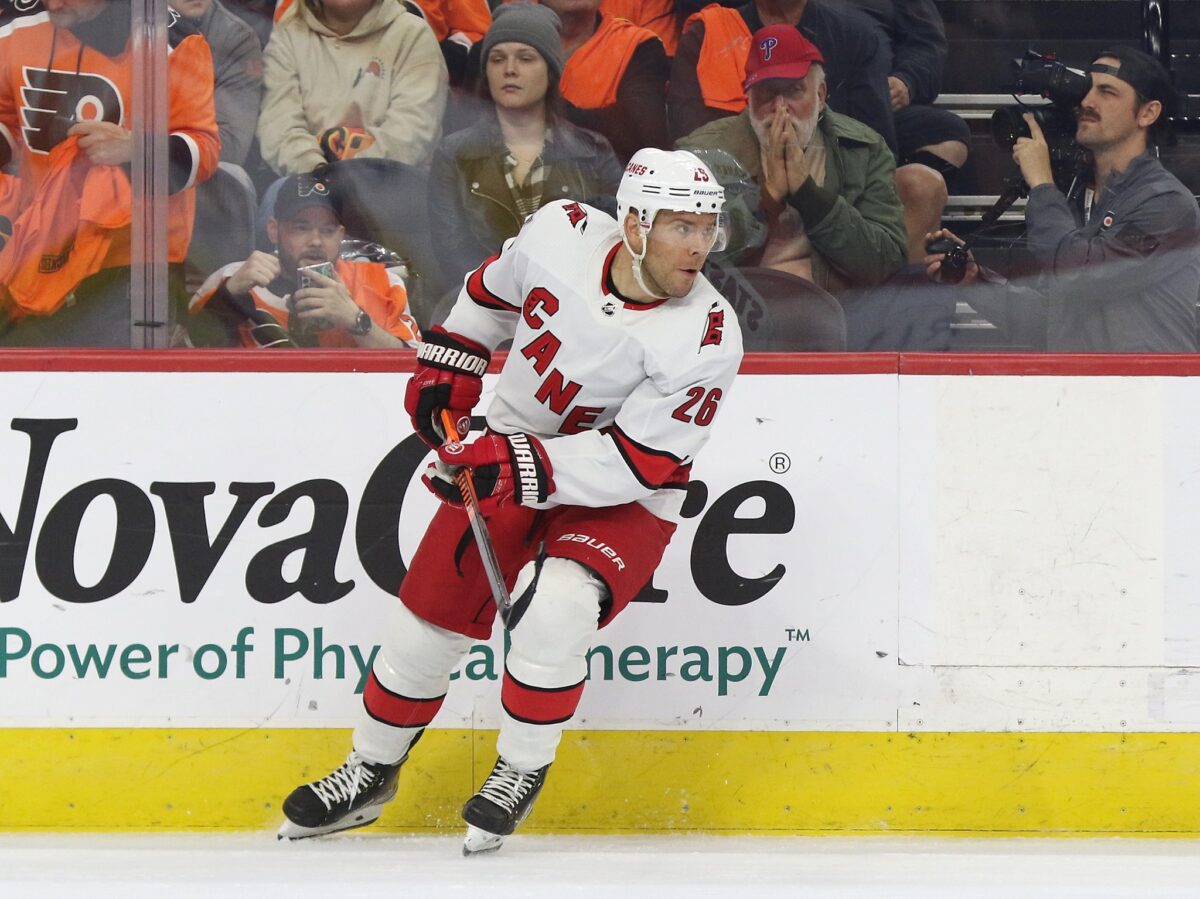
The Hurricanes not only avoid the big signing but often have a plan if they lose a talented player in the offseason or the middle of the season to an injury. A strong prospect pool has allowed younger players to step up and take on greater roles, but Waddell will also bring in players who fit the system and the roster in place. As a result, the Hurricanes rarely had a signing or an acquisition backfire, and if a deal doesn’t work out as planned, it’s easier for him to move on from it.
The Stars have also rarely made a splash signing, and this offseason, their moves helped the team retool on the fly. The big acquisitions were forward Mason Marchment and defenseman Colin Miller, two depth skaters who helped balance out a top-heavy roster. Dallas already had elite players with Robertson, Jamie Benn, and Joe Pavelski in the top six and Miro Heiskanen on defense, but they needed skaters to play down the lineup. Marchment and Miller provided that and made the team look like one of the best in the Western Conference all season.
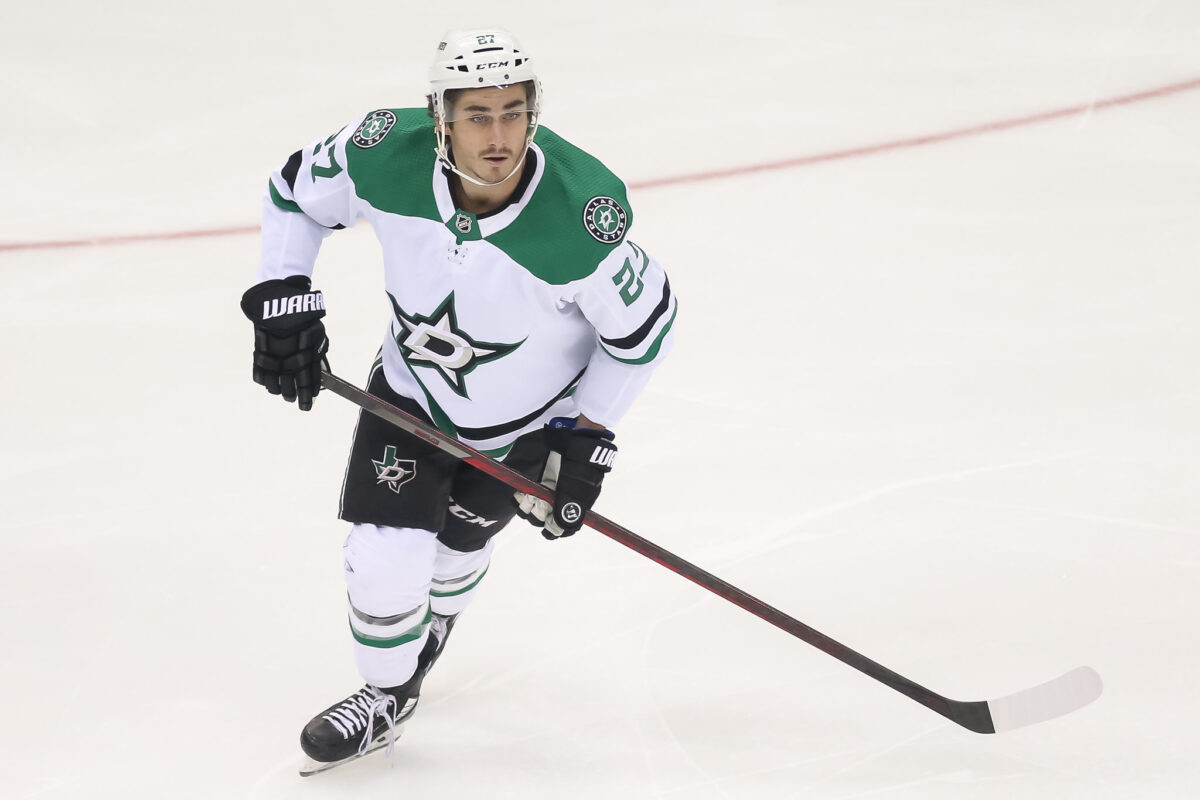
At the trade deadline, the Stars could have made a splash but instead added more depth. They acquired Dadonov from the Montreal Canadiens and Domi from the Chicago Blackhawks, two forwards who play a limited offensive role. In the playoffs, they have emerged as integral pieces of the offense.
Additionally, instead of making big moves, the Stars showed confidence in the young players who made their mark on the roster this season. Harley, Wyatt Johnston, and Ty Dellandrea are all 22 years old or younger and have been key to the team’s success in the playoffs, combining for six goals and eight assists while impacting the game in all three zones. These young players also balance out a veteran-heavy roster that has five skaters 33 years old or older.
The Hurricanes and Stars already had the core players in place to compete. However, unlike a lot of teams that try to make a push for the Stanley Cup, they didn’t add more players to their core. Instead, they built around their best players and rounded out their rosters, making them both Cup contenders.
Other Takeaways From the Final Four Teams
The biggest takeaway from these final four teams is that hockey can thrive in smaller, non-traditional markets. When ownership groups invest in their fanbase and build a competitive team, hockey can thrive in any market. The Arizona Coyotes are in the news after their arena proposal was rejected by voters in the area, and it’s easy to think that the NHL can’t succeed in a Sun-Belt city. However, the final four have proved the opposite; they are not only competing for the Cup but thriving in their respective markets.
The final four teams have also shown that goaltending isn’t vital to success; a team no longer needs an elite goaltender to make a Cup run if they surround the goaltender with great players and a great system. In a league where scoring is up, elite goaltending isn’t as relevant, and teams must invest in the other positions to win.
Last season’s final four teams provided a glimpse of what the future of hockey will look like. They were led by speed, skill, elite playmaking at all positions, and aggressive offensive-minded systems. In 2023, the final four have shown how teams will adapt to the evolving game and can defeat teams that thrive on speed and skill.